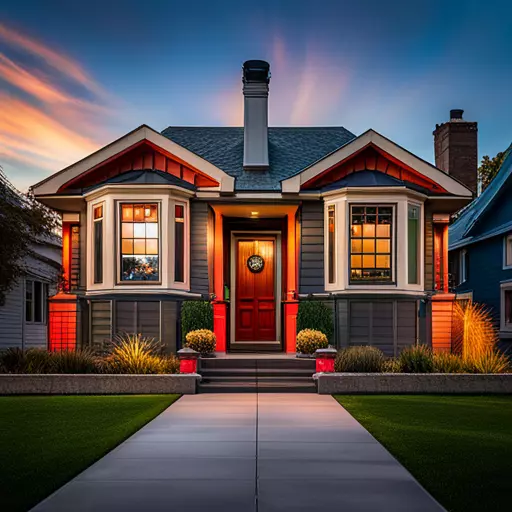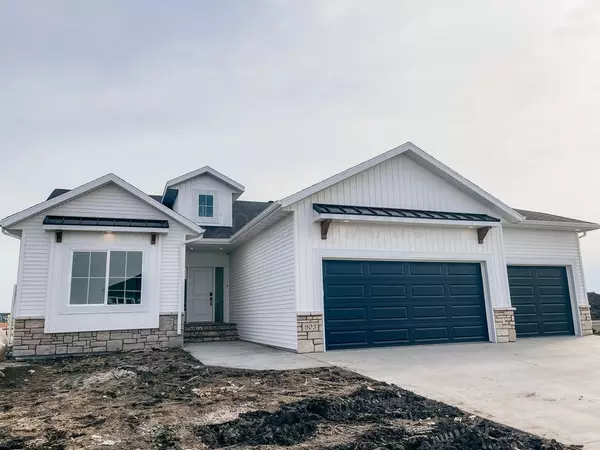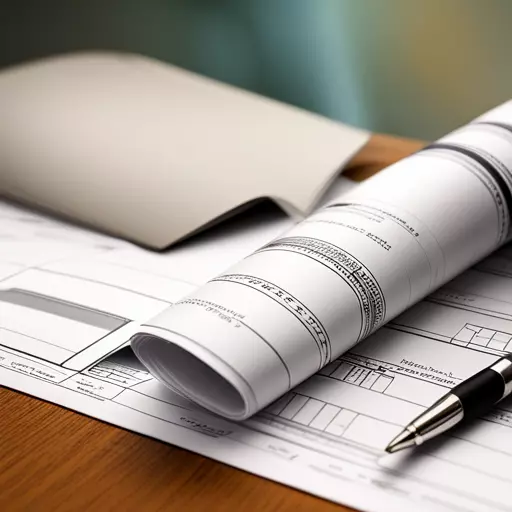

What do you pay for out of pocket when you buy
As a buyer, you're probably wondering what expenses you will have to pay for when purchasing a home. Buying a home is a significant investment that requires careful planning and a bit of financial preparation. In this blog post, we'll discuss what expenses you'll need to pay for when buying a home, how to pay for them, and what to avoid. Down Payment The down payment is one of the most significant expenses when buying a home. It's the cash amount you pay upfront and is typically 3.5-20% of the total purchase price. However, some lenders may require a lower or higher down payment amount. You can pay for the down payment using savings, investments, or by borrowing from family or friends. Alternatively, you can use a down payment assistance program if you qualify. Closing Costs Closing costs are the fees associated with finalizing the purchase of your home. These fees can vary from state to state, but they typically include appraisal fees, attorney fees, title insurance, home inspection fees, and more. Closing costs can range from 2% to 5% of the total purchase price of the home. You can pay for closing costs using cash or by financing them into your mortgage. However, remember that financing your closing costs will increase your monthly mortgage payment. Home Inspection A home inspection is a crucial step in the home buying process. It's an assessment of the condition of the home and its major systems, such as electrical, plumbing, and HVAC. The cost of a home inspection can range from $300 to $500, depending on the size of the home and the location. You can pay for a home inspection using cash or by adding it to your closing costs. However, keep in mind that some lenders may require a home inspection before financing your mortgage. Appraisal Fees An appraisal is an evaluation of the home's value. It's used to determine the fair market value of the home and to ensure the lender is not financing more than the home is worth. The cost of an appraisal can range from $300 to $600, depending on the size of the home and the location. You can pay for an appraisal using cash or by adding it to your closing costs. Title Insurance Title insurance protects you and the lender from any defects or issues with the title of the home. It's a one-time fee that's typically included in your closing costs. The cost of title insurance varies from state to state but can range from $500 to $1,500. What to Avoid When buying a home, it's essential to avoid any unnecessary expenses that can strain your finances. One expense to avoid is private mortgage insurance (PMI). PMI is required if your down payment is less than 5-20% of the home's purchase price, depending on the lender. It's an additional cost that can range from 0.3% to 1.5% of the total loan amount. To avoid PMI, try to save for a higher down payment or look for programs that offer down payment assistance. In conclusion, buying a home can be a costly endeavor, but it's an investment that can pay off in the long run. As a buyer, you'll need to pay for a down payment, closing costs, home inspection, appraisal fees, and title insurance. You can pay for these expenses using savings, investments, or by financing them into your mortgage. However, it's essential to avoid unnecessary expenses such as PMI, as they can strain your finances. With careful planning and preparation, you can become a homeowner without breaking the bank.
Read More

How to Choose the Right Real Estate Agent for Selling Your Home
If you are looking to sell your home, choosing the right real estate agent is critical. A good agent can help you sell your property quickly and for the best possible price, while a bad agent can leave your home sitting on the market for months and may even cost you money in the long run. In this article, we will explore some of the key factors to consider when choosing a real estate agent to sell your home. Factors to Consider 1. Experience One of the most important factors to consider when choosing a real estate agent is their experience. An experienced agent will have a better understanding of the local market, pricing trends, and marketing strategies. They will also have a larger network of potential buyers and other real estate professionals that they can tap into to help sell your home. 2. Reputation A good reputation is also essential when choosing a real estate agent. Look for an agent with a proven track record of success and satisfied clients. Check online reviews, ask for references, and speak with other people in the community who have worked with the agent before. 3. Marketing Strategy A strong marketing strategy is critical when selling a home. Look for an agent who has a clear plan for marketing your property, including online advertising, open houses, and other promotional activities. Make sure the agent is willing to invest time and money into marketing your home, and that they have a solid understanding of how to reach potential buyers. 4. Communication Communication is key when working with a real estate agent. Look for an agent who is responsive and easy to get in touch with, and who is willing to keep you updated on the progress of your sale. You should also make sure that the agent is a good listener and understands your needs and goals. 5. Commission Real estate agents typically work on commission, which is a percentage of the sale price of your home. Make sure you understand how much the agent will charge and what services are included in their fee. Don't be afraid to negotiate the commission rate if you feel it is too high. 6. Personality Finally, it's important to choose an agent who you feel comfortable working with. Selling a home can be a stressful process, and you want to work with someone who you trust and who you feel understands your needs and goals. Conclusion Choosing the right real estate agent is critical when selling your home. Look for an experienced agent with a good reputation, a strong marketing strategy, excellent communication skills, and a personality that you feel comfortable with. By doing your research and taking the time to choose the right agent, you can ensure a smooth and successful home selling experience. FAQs How do I find a real estate agent? There are several ways to find a real estate agent, including asking for referrals from friends and family, searching online, or contacting a local real estate office. What questions should I ask a potential real estate agent? Some questions to ask a potential real estate agent include: How long have you been in the business? What is your experience with selling homes in my area? What is your marketing strategy? What is your commission rate? How much should I expect to pay a real estate agent? Real estate agents typically charge a commission of around 5-6% of the sale price of your home, although this can vary depending on the agent and the location. How long does it typically take to sell a home? The length of time it takes to sell a home can vary depending on a number of factors, including the local market conditions and the price of the home. On average, it takes around 30-45 days to sell a home. Can I negotiate the commission rate with my real estate agent? Yes, you can negotiate the commission rate with your real estate agent. However, keep in mind that the agent's commission is how they make their living, so it's important to be fair and reasonable in your negotiations.
Read More

Discover Your Dream Home with 1482 69 Avenue S in Fargo, ND
Are you on the lookout for a new home in Fargo, North Dakota? If so, you'll definitely want to check out this incredible listing at 1482 69 Avenue S. With a listing price of $323,130, this stunning property is a true gem in the real estate industry.One of the best things about this property is the current promotion being offered by a specific lender. The Spring Special includes up to $3,500 toward closing costs, although terms and conditions do apply. If you're interested in learning more about this offer, be sure to ask the Sales Team for additional information.So, what can you expect from this incredible property? To start, this is a "To be built" property, meaning you'll have the opportunity to customize the home to your liking. The home is a 1944 Classic 3-level Traditional Exterior design, which is perfect for those who love a classic, timeless look.One of the best things about this property is that it includes a sod yard up to 5,000 square feet, a sprinkler system, a deck, and kitchen appliances. This means you won't have to worry about any major expenses after moving in, as these items are already taken care of for you.The great room is a particular highlight of this property. With tall windows and plenty of natural light, this space is perfect for relaxing, entertaining, and spending time with loved ones. The custom kitchen is equally impressive, with stone countertops and plenty of space for cooking, dining, and socializing with guests.Another great feature of this property is the laundry room, which is conveniently located upstairs. This makes it easy to keep up with household chores without having to lug laundry baskets up and down stairs. The private master suite is also a highlight, with plenty of space and a luxurious feel.Overall, 1482 69 Avenue S is an exceptional property that truly has it all. With a stunning design, plenty of amenities, and an unbeatable location in Fargo, ND, this home is sure to make your dreams come true. So why wait? Contact the Sales Team today to schedule a tour and experience this incredible property for yourself.
Read More

Understanding Earnest Money: What It Is and How It Works
When it comes to buying or selling a property, one term that you might come across is earnest money. It is a sum of money paid by the buyer to the seller to show that they are serious about purchasing the property. In this blog, we will discuss what earnest money is and how it works for both buyers and sellers in Fargo-Moorhead. What is Earnest Money? Earnest money is a deposit made by the buyer to the seller when they make an offer on a property. It is usually a small percentage of the total purchase price, typically between 1% to 5%. The purpose of earnest money is to show the seller that the buyer is serious about purchasing the property and to compensate the seller in case the deal falls through due to the buyer's fault. Buyers As a buyer in Fargo-Moorhead, when you make an offer on a property, you will be required to provide earnest money as a sign of good faith. The amount of earnest money you need to pay will depend on the purchase price of the property and the real estate market conditions. The earnest money will be held in an escrow account until the closing of the transaction. If the deal goes through, the earnest money will be applied towards the purchase price of the property. However, if the deal falls through due to issues such as the property not passing the inspection or the buyer being unable to secure financing, the earnest money will be returned to the buyer in most cases. It is important to note that if the buyer backs out of the deal for reasons not covered in the contract, the seller may be entitled to keep the earnest money. Therefore, buyers should carefully review the terms of the contract before making an offer and paying earnest money. Sellers As a seller in Fargo-Moorhead, earnest money serves as a security deposit in case the deal falls through due to the buyer's fault. If the buyer backs out of the deal without a valid reason, the seller may be entitled to keep the earnest money. This is to compensate the seller for the time and effort they have invested in the transaction. If the deal goes through, the earnest money will be applied towards the purchase price of the property. However, if the deal falls through due to reasons beyond the buyer's control, such as the property not passing the inspection or the buyer being unable to secure financing, the earnest money will be returned to the buyer. Conclusion In conclusion, earnest money is an important part of the real estate transaction in Fargo-Moorhead. It shows the seller that the buyer is serious about purchasing the property and serves as a security deposit in case the deal falls through due to the buyer's fault. It is important for both buyers and sellers to understand the terms of the contract and the legal requirements for earnest money. The real estate industry in Fargo-Moorhead is growing, and the use of earnest money will continue to be an essential part of the transaction process.
Read More
Recent Posts











